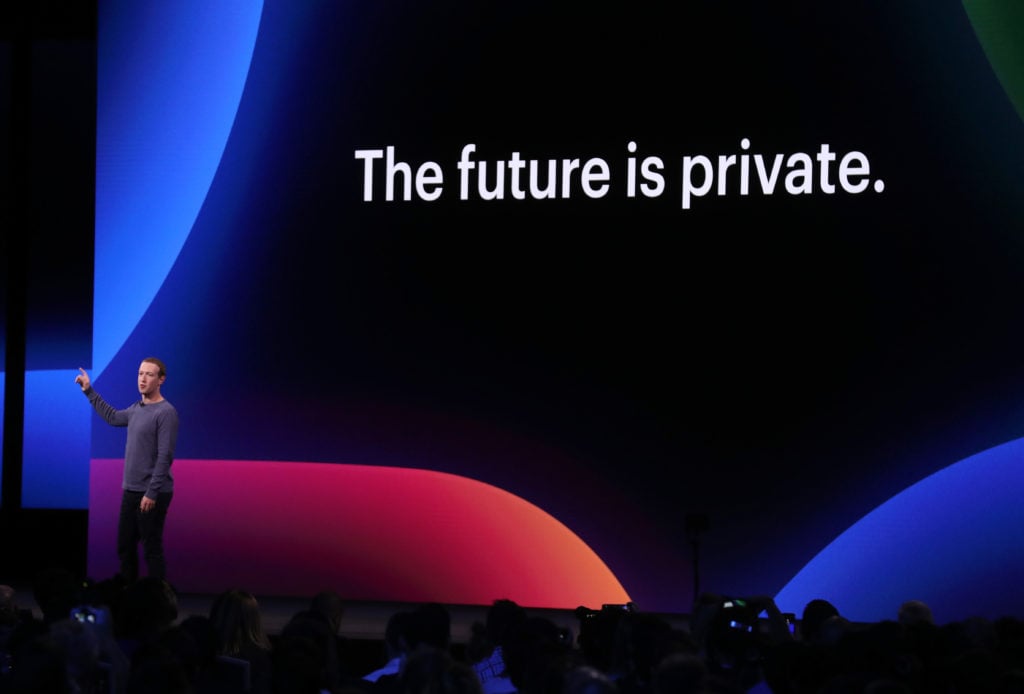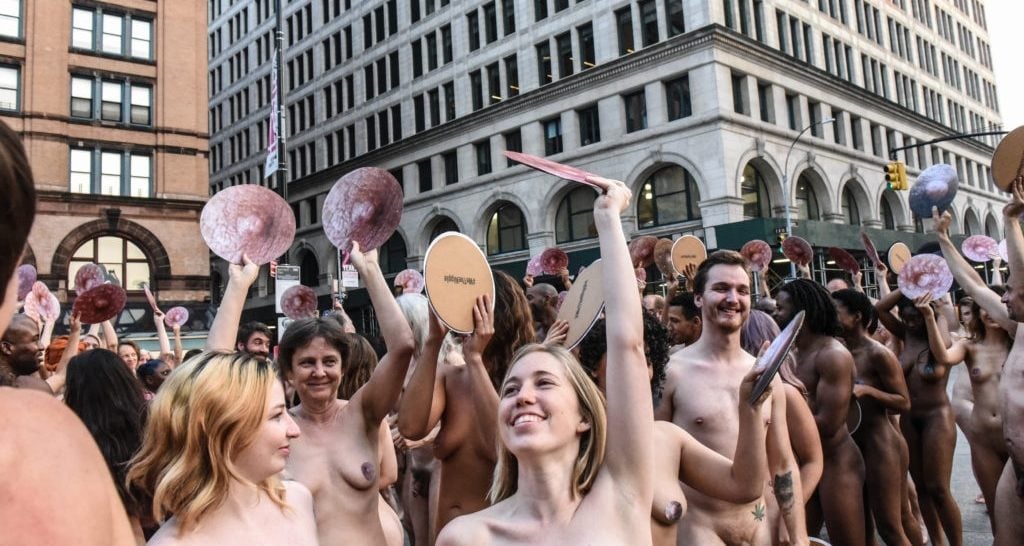Art World
After Criticism, Facebook Agrees to Meet With Artists and Curators to Discuss the Censorship of Art on Its Site
The development follows a nude performance art demonstration held outside the company’s New York offices earlier this week.

The development follows a nude performance art demonstration held outside the company’s New York offices earlier this week.

Taylor Dafoe

Will the nipple finally be freed? A group of activists announced today that Facebook has agreed to reevaluate its approach to artistic nudity on its site days after a demonstration under the banner #FreetheNipple sought to call attention to the flaws in its policy.
According to a statement released by the National Coalition Against Censorship (NCAC), which co-organized the event with photographer Spencer Tunick, Facebook will convene a “group of stakeholders including artists, art educators, museum curators, activists, as well as Facebook employees” to “discuss the issue of nude photographic art and the harm done to artists, provide insights into the challenges Facebook has faced in developing its nudity policies, and explore ideas for a path forward.”
“We can confirm that we agreed to meet with the National Coalition Against Censorship and other stakeholders,” a spokesperson from Facebook told artnet News. “Our conversations with the National Coalition Against Censorship preceded last weekend’s demonstration, and will continue on long after. It’s important for us to hear from directly from different communities who use Facebook and Instagram.”

People celebrate after posing nude holding cut outs of nipples during a photo shoot by artist Spencer Tunick on June 2, 2019 in New York City. Photo by Stephanie Keith/Getty Images.
Last spring, Facebook released an updated policy toward nudity, which allowed for paintings and sculptures that depict nude figures. (In the past, even major museums have found themselves in social-media jail for posting photos of antique sculptures including the Venus of Willendorf.) But restrictions still apply to fine-art photographs that contain nudity. (Under Facebook’s terms, women’s nipples are not allowed to be displayed except in very specific contexts, such as photographs of breastfeeding, or to depict the aftermath of mastectomy surgery. Men, meanwhile, have no such rules applied to their bodies.)
To protest this policy, NCAC launched the #WeTheNipple campaign in April, which culminated with a performance art installation and photo shoot outside Facebook’s New York offices last Sunday featuring 125 volunteers. (The demonstration was photographed by Tunick and inspired by the work of artist Micol Hebron.) That same day, the NCAC issued a letter to Monika Bickert, Facebook’s Head of Global Policy Management, asking the company to commit to artists rather than censoring their expression.
“We acknowledge that moderating content for billions of users with diverse values presents unprecedented challenges and that drawing the line between art and images that are not art is notoriously hard,” the letter reads. “But this challenge does not justify banning all photographic images of the nude body, a ban that imposes the beliefs of some Facebook users on the entire world, stifles artistic expression, and enforces gender discrimination by permitting images of male nipples while prohibiting female nipples.”
When reached for comment, a representative from NCAC explained that the meeting with Facebook will likely take place later this summer, though no official date has been set.
“We’re looking forward to working with Facebook and we’re heartened by their quick response to our campaign,” the representative says. “We hope that by bringing stakeholders in the arts to the table with Facebook’s policy team and tech experts we’ll be able to work together to ensure that artists’ needs are valued in the decision-making process.”